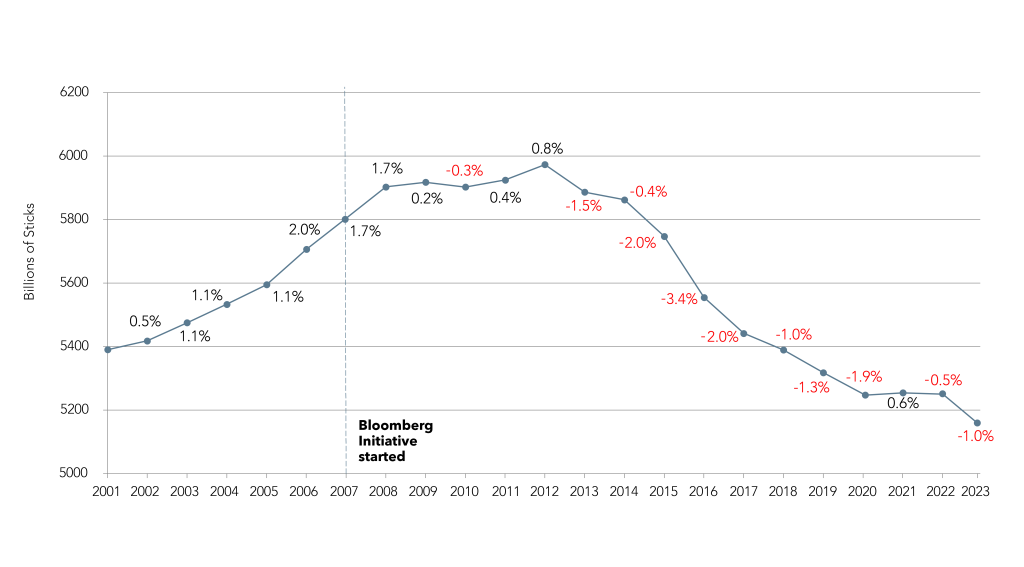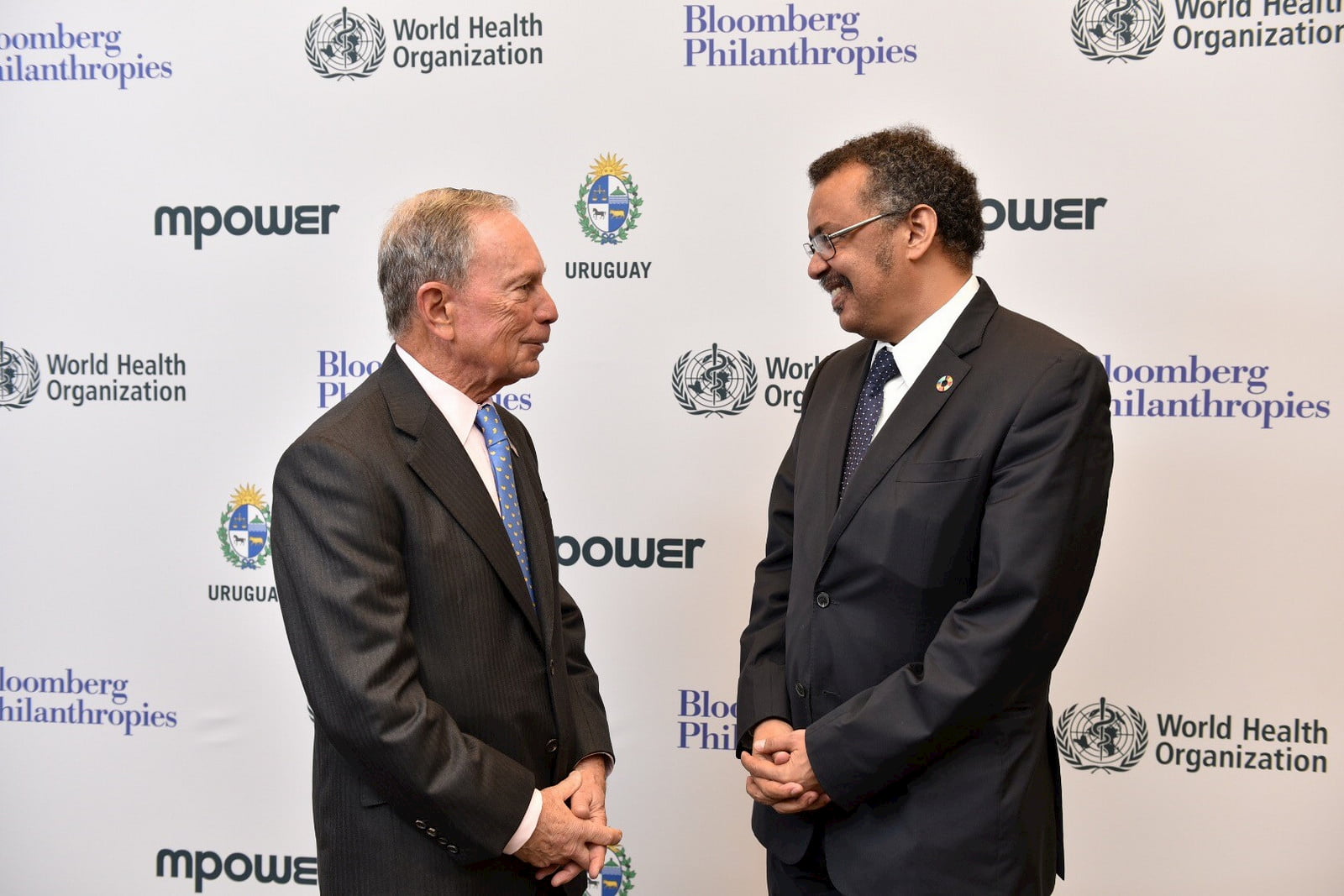Bloomberg Initiative to Reduce Tobacco Use
The Bloomberg Initiative to Reduce Tobacco Use is helping cities and countries implement measures that are proven to reduce use and protect people from harm, including smoke-free public places, banning tobacco advertising, increasing tax on tobacco products, requiring graphic warnings on cigarette packaging, and mass-media public awareness campaigns. Currently, the initiative spans more than 110 low- and middle-income countries — including China and India, which together account for nearly 40% of the world’s smokers.
Global cigarette sales continue to decline

Bloomberg Philanthropies works with national and local governments to enact a package of lifesaving anti-tobacco policies called MPOWER. These strategies have proven highly effective in reducing tobacco use:

More than 100 countries now have at least one MPOWER policy in place, protecting about 5 billion people, or 65% of the global population. This is up from 1 billion people, or 15% of the population, covered in 2007 when the initiative began — a fivefold increase. Since the Initiative was launched, global smoking rates have fallen from 22.7% to 17.5%. Global cigarette sales have also plummeted, with 750 billion fewer cigarettes sold in 2021 compared to 2012.
In February 2023, Bloomberg Philanthropies announced an additional commitment of $420 million over four years to the Bloomberg Initiative to Reduce Tobacco Use. This funding helps address tobacco use in low- and middle-income countries (LMICs) and targets reducing e-cigarette use among teenagers in the United States.

Top photo: In China, taxi drivers proudly display their no smoking signs. A smoke-free law was passed in Tianjin in March 2012, and protects the 7.5 million people who live there.